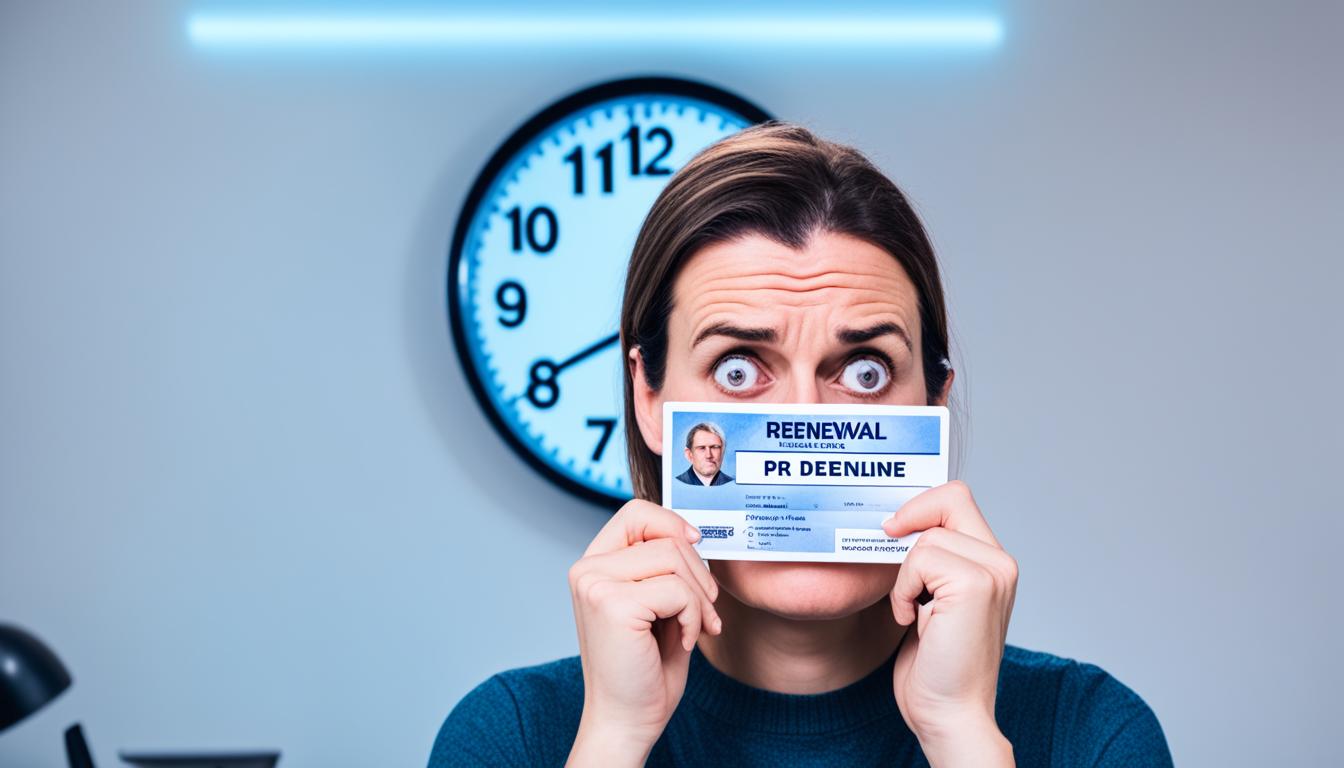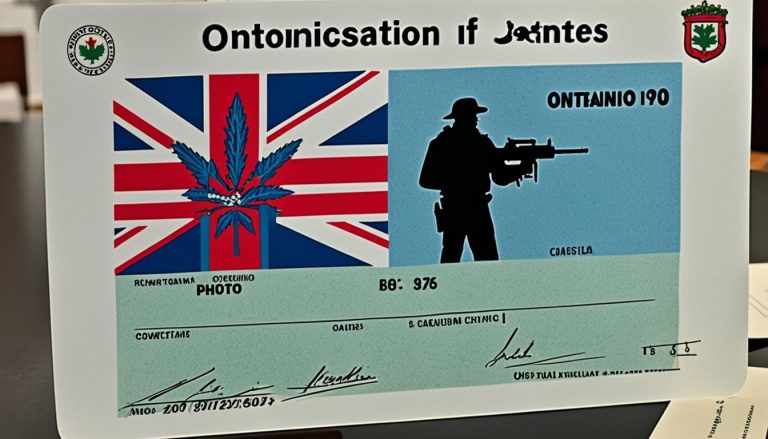Are you a Permanent Resident in Canada? If so, you know the importance of having a valid Permanent Resident (PR) card. This card serves as proof of your status and allows you to enter the country when traveling abroad. However, like any other official document, the PR card has an expiration date. So, what do you do when your PR card is about to expire? How do you go about renewing it? In this article, we will delve into the process of renewing your PR card in Canada. We will address key questions such as how to renew your PR card, how long the renewal process typically takes, and how much the renewal fee is. Read on to ensure a smooth and hassle-free renewal process!

Understanding the Residency Obligation
As a permanent resident of Canada, it’s crucial to understand the residency obligation before renewing your PR Card. This requirement dictates that you must have spent a minimum of 730 days (2 years) out of the last 5 years physically present in Canada. If you have not met this pr card requirements, you should not proceed with the renewal process.
Minimum Days Required in Canada
The pr card validity is directly tied to the residency obligation. To maintain your permanent resident status, you must have been present in Canada for at least 730 days (2 years) within the last 5 years. This ensures you are actively participating in and contributing to Canadian society, which is a fundamental aspect of being a permanent resident.
Consequences of Not Meeting the Obligation
Failing to meet the residency obligation can have serious consequences for your permanent resident status. If IRCC (Immigration, Refugees and Citizenship Canada) determines that you have not fulfilled the minimum residency requirement, they may revoke your pr card expiration and potentially remove your permanent resident status altogether. This would mean you would no longer be able to live, work, or travel in Canada as a permanent resident.
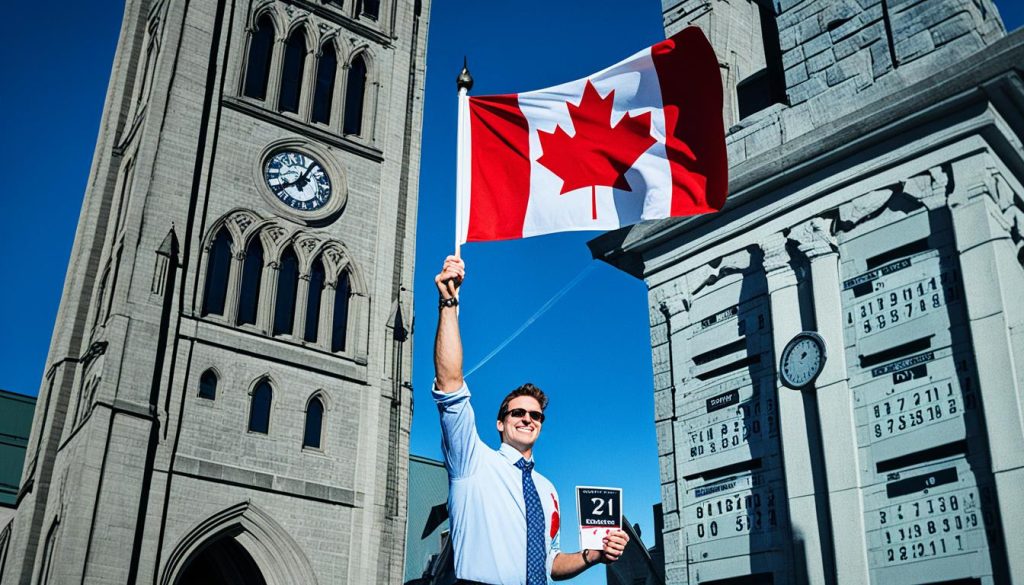
Completing the PR Card Application
To renew your PR card, you will need to complete the IMM 5444 Application for a Permanent Resident Card. This comprehensive form requires you to provide various personal details, as well as information about your immigration history.
1. Required Documents
Along with the completed application form, you will need to gather several supporting documents, including a photocopy of your previous PR card and proof of your permanent resident status. These supporting documents are crucial to the renewal process and must be submitted alongside your application.
2. Personal Details Section
The Personal Details section of the application form will ask you to provide information such as your name, date of birth, contact information, and other personal identifiers. Ensuring that this information is accurate and up-to-date is essential for the successful processing of your PR card renewal.
3. Immigration History Section
In the Immigration History section, you will be required to provide details about your immigration status and background. This may include information about your entry into Canada, any changes to your immigration status, and your overall history as a permanent resident. Providing complete and truthful information in this section is crucial to demonstrate your eligibility for PR card renewal.
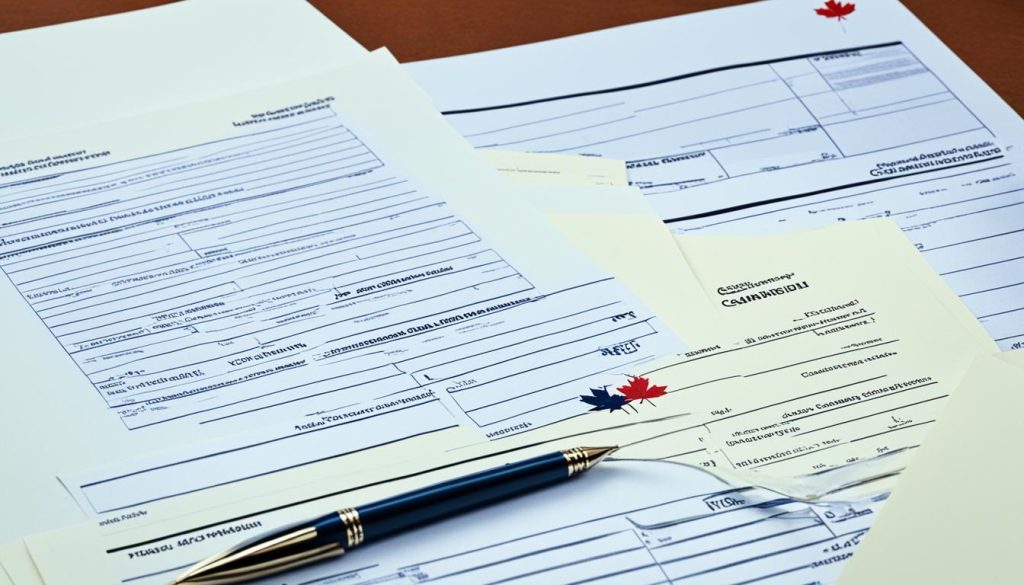
Providing Address, Work, and Travel History
The PR Card application requires you to provide detailed information about your address, work, and travel history over the past 5 years (or since becoming a permanent resident if it has been less than 5 years). This includes listing all the addresses you have lived at, both in Canada and abroad, as well as your work and educational activities. Importantly, you must also declare all absences from Canada during this time period, as this information is crucial for determining whether you have met the residency obligation.
1. Address History Inside and Outside Canada
In the PR Card application, you will be required to provide a comprehensive list of all the addresses you have resided at, both within Canada and in other countries, over the past 5 years (or since becoming a permanent resident if it has been less than 5 years). This information helps the Immigration, Refugees and Citizenship Canada (IRCC) to verify your address history and determine your eligibility for the PR Card renewal.
2. Work and Educational History
The PR Card application also requires you to provide details about your work and educational history during the same time period. This includes listing your employment, including the names of your employers, job titles, and the dates of employment, as well as any educational institutions you have attended and the programs you have completed. This information helps IRCC to assess your overall activities and engagement in Canada as a permanent resident.
3. Travel History and Absences from Canada
Lastly, the PR Card application requires you to declare all absences from Canada during the past 5 years (or since becoming a permanent resident if it has been less than 5 years). This includes providing the dates of your departures from and returns to Canada, as well as the reasons for your travel. This information is crucial for IRCC to determine whether you have met the residency obligation, which is a key requirement for renewing your PR Card.
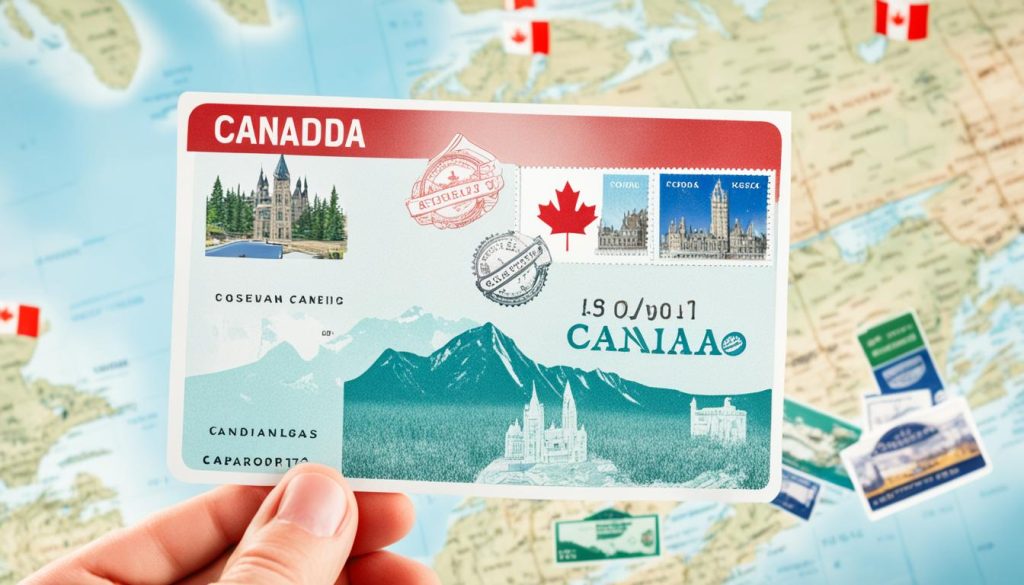
Assessing the Residency Obligation
The residency obligation is a critical factor in the PR Card renewal process. If you have spent 1095 days (3 years) or more outside of Canada within the last 5 years, you will need to complete Section D of the application form, which requires you to list all your absences from Canada and explain any extended stays outside the country. This information will be used by Immigration, Refugees and Citizenship Canada (IRCC) to assess whether you have met the pr card validity requirements.
1. Listing Absences from Canada
In Section D of the PR Card application, you will be asked to provide detailed information about any time you have spent outside of Canada during the last 5 years (or since becoming a permanent resident if it has been less than 5 years). This includes listing the dates of your departures and returns, as well as the reason for each absence, such as business trips, vacations, or other personal matters.
2. Explaining Extended Stays Outside Canada
If you have had any extended stays outside of Canada, exceeding 183 days (6 months) in a 12-month period, you will need to provide a detailed explanation. This could include circumstances such as caring for a sick family member, undertaking long-term work or study abroad, or any other valid reason for your prolonged absence. Providing a clear and thorough account of your pr card expiration and the reasons for your extended stays will help IRCC assess whether you have met the residency obligation requirements.
How to Renew Your PR Card in Canada?
Once you have completed the PR Card application and gathered all the necessary documents, you can submit your renewal request to Immigration, Refugees and Citizenship Canada (IRCC). The processing time for PR Card renewals can vary, typically taking between 12 to 24 weeks.
1. Application Processing Times
The processing time for your PR card renewal depends on several factors, including the type of application, the completeness of your submission, and the overall volume of applications IRCC is currently receiving. It’s important to note that the processing times can fluctuate, so it’s best to check the latest information on the IRCC website for the most up-to-date estimates.
2. Factors Affecting Processing Times
Several key factors can influence the timeline for your PR Card renewal application:
- Type of application: Depending on whether you are submitting a paper-based or online application, the processing time may differ.
- Completeness of the application: Submitting a fully completed application with all required documents can help expedite the process.
- Current application volume: The number of PR card renewal applications IRCC is currently processing can impact the overall processing time.
By understanding these factors, you can better prepare your application and manage your expectations regarding the PR card processing time. Staying informed and proactive throughout the renewal process can help ensure a smooth and timely outcome.
Additional Considerations
When renewing your Permanent Resident (PR) Card in Canada, there are a few additional factors to keep in mind beyond the standard application process. If you have legally changed your pr card name change or experienced a pr card status change since your last PR Card was issued, you will need to provide supporting documentation and notify Immigration, Refugees and Citizenship Canada (IRCC) of these changes.
1. Name or Status Changes
If you have legally changed your name, such as through marriage or a court order, you will need to submit a copy of the official document that reflects the name change, along with your PR Card renewal application. Additionally, if there has been a change in your immigration status, such as becoming a Canadian citizen or obtaining a new temporary residence permit, you must inform IRCC of this update.
2. Lost, Stolen, or Damaged PR Cards
In the unfortunate event that your PR Card has been lost pr card, stolen pr card, or damaged pr card, you will need to follow a separate process to replace it. This may involve submitting an application for a Replacement of a Permanent Resident Card, along with any required supporting documentation and fees. It’s important to act quickly in these situations to minimize any disruptions to your ability to live, work, and travel in Canada.
By being aware of these additional considerations and taking the necessary steps, you can ensure a smooth and successful PR Card renewal process, regardless of any changes or issues that may have occurred since your last card was issued.
Conclusion
Renewing your PR Card in Canada is an essential process to maintain your permanent resident status and continue living, working, and traveling in the country. By understanding the residency obligation, completing the PR card application accurately, providing the necessary documentation, and being aware of any additional considerations, you can navigate the permanent resident card renewal process with confidence. This guide has provided you with a comprehensive overview of the steps involved, so you can ensure a successful and stress-free renewal of your Permanent Resident Card in Canada.
Whether you’re preparing to renew your PR card for the first time or need to update your information, the key is to stay informed and proactive. By familiarizing yourself with the requirements, processing times, and any potential changes to your status or personal details, you can minimize delays and ensure the seamless continuation of your permanent resident privileges.
Remember, maintaining a valid PR Card is not only a legal requirement but also an essential part of your integration and belonging as a permanent resident of Canada. By taking the necessary steps to renew your card before it expires, you can avoid any disruptions to your ability to live, work, and travel freely within the country. With the information provided in this comprehensive guide, you can approach the PR card renewal process with confidence and ensure a successful outcome.
FAQ
1. Can I renew my PR card online?
No, you cannot renew your Permanent Resident (PR) card online. The application must be submitted by mail to Immigration, Refugees and Citizenship Canada (IRCC).
2. How do I renew my Permanent Resident (PR) card?
To renew your PR card, you need to complete the IMM 5444 Application for a Permanent Resident Card and submit it along with the required supporting documents to IRCC.
3. What should I do if my PR card is expired?
If your PR card has expired, you should renew it as soon as possible to maintain your permanent resident status in Canada. The renewal process is the same as renewing a non-expired PR card.
4. How much does it cost to renew a PR card?
The fee for renewing a PR card is $50 CAD. This fee must be paid when submitting your application.
5. How long does it take to renew a PR card?
The processing time for PR card renewals typically takes between 12 to 24 weeks, but can vary depending on factors such as the volume of applications IRCC is currently receiving.
6. How can I renew my PR card faster?
There is no option to expedite the PR card renewal process. The standard processing time applies to all renewal applications.
7. What are the requirements to renew my PR card?
To renew your PR card, you need to provide the completed IMM 5444 application form, a photocopy of your previous PR card, and proof of your permanent resident status in Canada.
8. How long is a PR card valid for?
Permanent Resident cards in Canada are valid for 5 years and must be renewed before the expiration date to maintain your permanent resident status.
9. Do I need to meet the residency obligation to renew my PR card?
Yes, you must have spent a minimum of 730 days (2 years) out of the last 5 years physically present in Canada to meet the residency obligation and be eligible to renew your PR card.
10. What happens if I don’t meet the residency obligation?
If you do not meet the residency obligation, you may risk losing your permanent resident status in Canada. It is important to ensure you have met the minimum days required before applying to renew your PR card.

